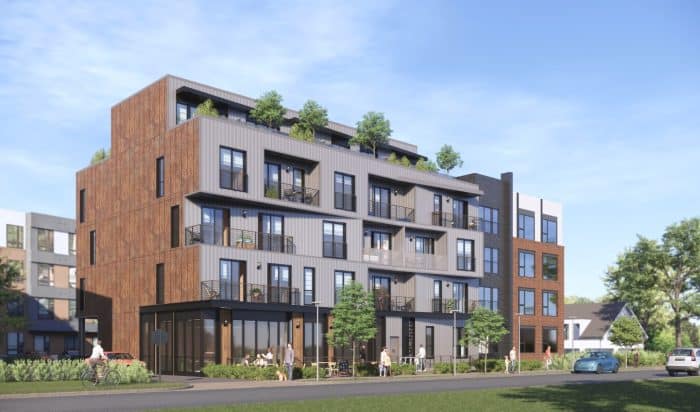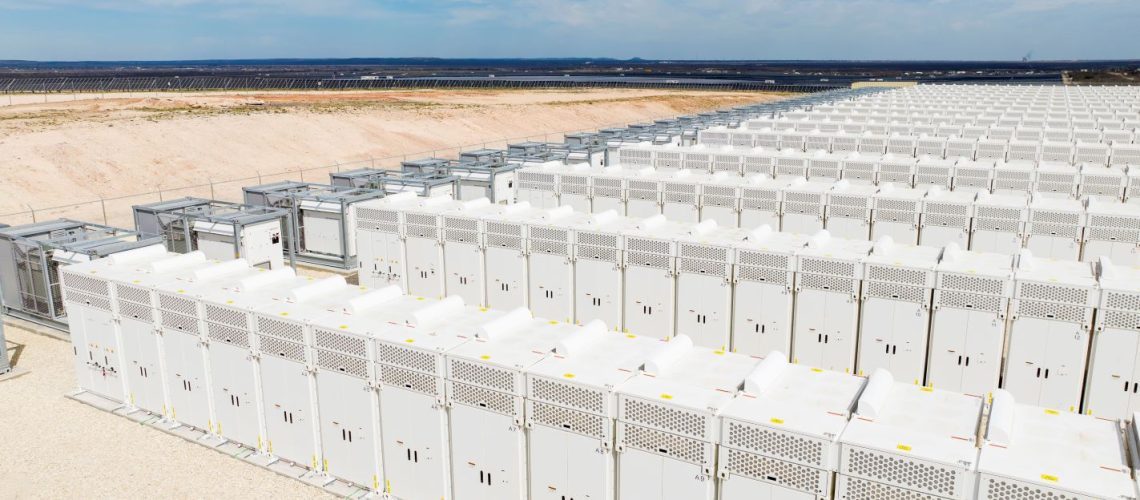First Citizens Bank is leading the charge during an active week for financing news. Several projects received funding and a significant solar portfolio acquisition rounds out this edition of the Solar Financing Spotlight.
Kicking things off, the First Citizens Bank Energy Finance division is helping to fund two Apex Clean Energy battery energy storage projects in Texas. The bank served as sole bookrunner and co-lead arranger on financing totaling more than $150 million.
One project, Great Kiskadee Storage, is a 100 MW / 200MWh battery energy storage system (BESS) owned by SA Grid Solutions — a joint venture of Apex, SK Gas and SK Eternix — and under construction in Hidalgo County, Texas. The other, Angelo Storage, is a 100 MW / 200 MWh BESS project that is under construction in Tom Green County, Texas.
Both are expected to reach commercial operation by Q3 2024. Bank United also served as co-lead arranger on the financings.
Founded in 2009 and headquartered in Charlottesville, Virginia, Apex Clean Energy focuses on the origination, construction and operation of utility-scale wind, solar and battery storage projects, distributed energy resources, and green fuel technologies.
“Battery storage is crucial to building a more resilient grid and enhancing the reliability and cost-effectiveness of renewable energy, ultimately enabling our mission to accelerate the shift to clean energy,” said Ken Young, CEO of Apex Clean Energy.
Catalyze has secured $100 million in financing from NY Green Bank, a division of the New York State Energy Research and Development Authority (NYSERDA), to support a 79 MW portfolio of community distributed generation (CDG) solar projects across New York.
The transaction advances NY Green Bank’s commitment to an equitable energy transition by requiring that a significant percentage of solar project subscribers benefit disadvantaged communities. The deal will advance the state’s goal of installing 6 GW of distributed solar by 2025, on the path to 10 GW by 2030.
“We are excited to leverage our extensive community solar expertise to ensure the success of NY Green Bank’s term loan supporting a community distributed generation (CDG) portfolio,” said Jared Haines, CEO of Catalyze. “CDG is one of the most effective means of making solar energy more accessible to low-to-moderate income communities, and we look forward to how this partnership will support both the goals of NY Green Bank and New York State.”
This loan continues Catalyze’s growing presence in New York, having recently announced projects reaching operation in Lancaster and Amherst. The company is leveraging its proprietary suite of technology to bring innovative solar development practices to the region.
“As our first term loan using a sale-leaseback structure for a CDG portfolio, coupled with a minimum 65% subscriber commitment benefiting historically disadvantaged communities, this transaction underscores NY Green Bank’s unique ability to provide innovative financing solutions that support the equitable distribution of clean energy,” said Andrew Kessler, president of NY Green Bank.
Aspen Power is partnering with a developer to acquire 20 community solar projects up to 19 MW, primarily in Illinois. The portfolio consists of projects in various stages, including projects already in construction and set to be commissioned this year.
“Expanding Aspen’s geographical portfolio plays a significant role in advancing decarbonization and increasing access to green energy in new communities,” said Dan Gulick, senior VP of community solar at Aspen Power.
Community solar has expanded in Illinois in recent years under the Climate and Equitable Jobs Act (CEJA). CEJA includes strategies to make solar energy more accessible to low- and moderate-income communities. Aspen Power’s acquisition reflects the positive market conditions in the state, resulting from continued policy support.
This acquisition continues the expansion of states where Aspen Power owns and operates community solar projects. With the addition of the Illinois portfolio, Aspen currently owns and operates community solar projects across five states with community solar programs: Maine, New York, Maryland, and California. Nationwide, Aspen has developed or acquired hundreds of solar projects spanning 24 states.
Aspen has partnered with Common Energy to subscribe and manage the community solar projects. Local households can opt into the community solar program and save money on their electricity bills while simultaneously lowering emissions.
“These projects will bring real economic benefits to Illinois residents and low-income families, and real environmental benefits to the broader community,” said Richard Keiser, founder and CEO of Common Energy.
Multi-family housing facility in D.C. gets $3.5 million for clean energy upgrades

The DC PACE Program and Peachtree Group have closed on $3.5 million in financing to improve the sustainability and energy efficiency of a new five-story mixed-use building in Washington, D.C.’s Ward 5.
This project will include solar panels, insulation, LED lighting and energy-efficient water fixtures and elevators. These measures will result in estimated annual reduction in electricity usage of 134,279 kWh and annual water reduction of 326,050 gallons, saving more than $2 million over the expected life of the equipment. The completed building at 1717 Hamlin St. NE will deliver 26 residential units and 1,500 square feet of retail space. The new building is anticipated to create up to 18 permanent jobs.
“This project shows the best of what the DC PACE Program has to offer: clean and sustainable development, access to capital for a small business owner, and investment in a historically underserved community,” said Ronald Hobson, DC PACE program director.
With this project, Peachtree Group, formerly known as Stonehill PACE, has now invested more than $20 million in projects in the city through the DC PACE Program. These four projects are estimated to reduce energy use by more than 4.2 million kWh annually.
The project is expected to be completed by summer 2025.
Nonprofits help Georgia church secure solar
A church in Statesboro, Georgia, has just become the first faith community in the state to sign a solar energy procurement agreement (SEPA) with Georgia BRIGHT — a first-of-its-kind solar program designed to help low to moderate-income (LMI( communities cut power bills and carbon emissions.
With the help of the nonprofit Georgia Interfaith Power and Light (GIPL), Trinity Episcopal Church entered GIPL’s Solar-Wise program in 2020. The church worked with GIPL program staff to explore different solar options, with GIPL assisting in the initial assessment and acting as a liaison with various installers. Most plans though were too expensive.
That is, until Georgia BRIGHT came along.
“When GIPL told us about Georgia BRIGHT and showed us how much we could save, I was skeptical at first,” says Fr. Charles Todd, Rector at Trinity Episcopal. “It seemed too good to be true. However, we talked to their team, got to know the Georgia BRIGHT people, saw their model, and learned that we really could get solar and save money. We could not be more excited!”
Georgia BRIGHT is funded by the national nonprofit Capital Good Fund. Capital Good Fund takes advantage of tax credits, grants, and bulk purchase discounts to help lower the cost of solar to homeowners and nonprofits like Trinity Episcopal through Georgia BRIGHT for nonprofits. With Georgia BRIGHT, not only do customers lower their power bills and reliance on fossil fuels, they also hedge against rising energy prices and become models of resilience for their communities. Over the next 25 years, Trinity Episcopal will save $60,560, and offset about 78% of its total energy consumption.
“Previously the benefits of solar were available [to] for-profit entities,” says Capital Good Fund founder and CEO Andy Posner, “Thanks to President Biden’s Inflation Reduction Act, we are helping change the game and cut energy burden across the state.”
Tags: Community Solar



